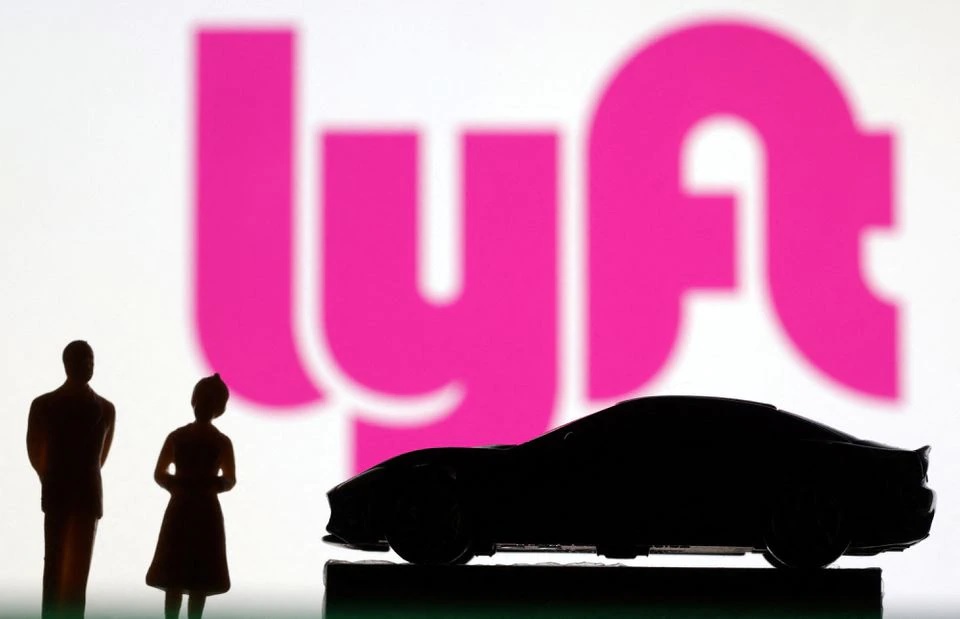May 5 (Reuters) – Lyft Inc (LYFT.O) shares tumbled 17% in premarket trading on Friday as the ride-hailing company’s strategy to claw back market share from rival Uber (UBER.N) with lower fares stoked concerns about a hit to its profit margins.
At least nine analysts slashed their price targets on a stock that has widely underperformed the market this year.
The company’s market capitalization was set to decline by nearly $700 million to about $3.3 billion, a far cry from the over $24 billion valuation it commanded in its 2019 stock market listing. Uber has a valuation of more than $75 billion.
Lyft gave a disappointing adjusted core earnings forecast for the second quarter on Thursday as efforts to add more riders with price cuts take a toll on profitability, underscoring the hurdles new CEO David Risher’s faces in turning around Lyft.
“Given how dynamic pricing is, Lyft’s report highlights how little it controls the destiny of its own profit and loss statement in the event Uber wanted to cause more damage,” said RBC Capital Markets analyst said Brad Erickson.
Uber CEO Dara Khosrowshahi this week indicated the company would not start a price war with Lyft, saying that “the days of paying for share and essentially using shareholder money to buy share temporarily .. are over.”
That has allowed Lyft, which has aggressively matched prices since the beginning of the year, increase its U.S. market share to about 30% from the mid-to-high 20% at the start of 2023.
The company plans to offset the lower prices with annual cost savings of about $330 million from moves such as its April decision to lay off over 1,000 employees, or 26% of its staff.
But Wall Street remains skeptical on whether the gains can be maintained.
“It is still very unclear as to whether any recovery can be maintained given significant advantages of Uber,” Atlantic Equities analysts said.
The 72% quarterly surge in Uber’s ride-share business had outperformed Lyft’s 14% growth, showing the advantages of its presence in key international markets. Uber also has a sprawling food-delivery operation that helps support its business.
“This looks like an Everest-like uphill battle ahead for Lyft in our opinion,” said Dan Ives of Wedbush Securities.










